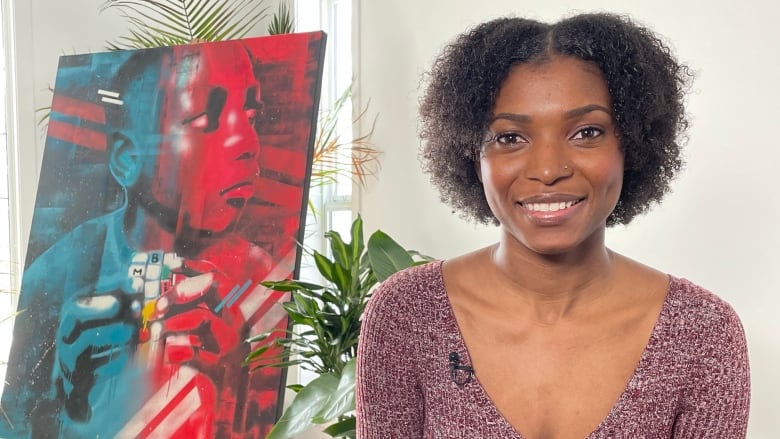Statistics Canada study on Black-owned businesses suggests systemic challenges hold them back
The number of Black-owned enterprises in Canada is growing, but still represent a tiny fraction of the country’s business landscape, and they tend to be smaller and less profitable than other businesses.
Those are some of the main takeaways from a recent Statistics Canada study that looked at the state of entrepreneurship among Black Canadians between 2001 and 2018.
The study amalgamated a series of different reports — including census data for 2001, 2006 and 2016; the 2011 National Household Survey and the 2018 Employer-Employee Dynamics Database — and analyzed them to see how the status for Black entrepreneurs has changed over the better part of two decades.
It found there were approximately 66,880 Black-owned businesses in Canada as of 2018; about 2.1 per cent of the more than 3.1 million businesses in total across the country.
According to the latest census data, 4.3 per cent of Canadians, or more than 1.5 million people, identify as Black.
Almost three-quarters of Black-owned businesses are owned by men, while the percentage of self-employment grew from 1.8 at the start of the study period to 3.5 per cent by 2018. That’s greater than the growth in self-employment among Black women, which went from 1.3 per cent to 2.2.
While Black-owned businesses are growing, the data suggests they are not meeting their full potential as they tend to be smaller and less profitable than other businesses.
More than 95 per cent of unincorporated Canadian businesses owned by Black people have fewer than one employee, and even among those that are large and complex enough to want to incorporate, more than 91 per cent have fewer than five.
“Black-owned businesses are almost half as likely as White-owned businesses to have five or more employees,” the study found.
They’re less lucrative, too. Among male business owners, Black men earned an average of $56,100. That’s $9,500 less than their counterparts from other racialized groups and $43,300 less than what average white male business owners earned in 2018. Black women business owners, meanwhile, earn the same as other racialized groups, but $16,000 less than white women.
Funding challenges
But Carlton-James Okaswe, a business professor at Mount Royal University, says the numbers clearly suggest there are systemic challenges holding Black-owned business from reaching their full potential.
“Black-owned enterprises … have a harder time getting bank loans … and even at what interest rates they might get,” he told CBC News. “That needs to be explored.”

In 2021, the federal government created the Black Entrepreneurship Loan Fund, a $265 million commitment to help entrepreneurs with loans of up to $250,000. Okaswe says programs like that and others are a step in the right direction, but he still hears from Black-owned businesses all the time who say their biggest challenge is funding.
Outside of conventional bank loans or government grants, a major funding source for small businesses is often what he calls “dealmakers” — entrepreneurs who grew businesses and now spend some of that capital to nurture the next generation.
“But these dealmakers tend to be Caucasians or white people in general, and so their networks will revolve around that,” he said. “It’s fair to say that the dealmaker network is something that Black people don’t have sufficient access to.”
Some solutions
Lola Adeyemi is one success story who managed to overcome those hurdles and build her dream business, but it wasn’t easy. After immigrating to Canada in 2005, she worked a variety of corporate jobs while longing to set out on her own in the food business. In 2018, she started It’s Souper, a soup company built on the flavours of her native Nigeria.
She launched her business from her own savings, but to scale up to the level where she can produce enough to get shelf space at major grocery chains, she needed money to survive. And the more she grew, the bigger those funding challenges got.
“The demands are pretty daunting and it starts immediately,” she said of the need for funding.
Two years after launching her business, she applied for and was awarded a $72,000 grant from law firm Cassels Brock, money she used to pivot to the new reality of selling in the pandemic: online. She later appeared on CBC’s Dragon’s Den seeking financing to help her manage her growth.
“It’s a huge problem because you’re not seeing others who have done it, so you don’t think it’s doable,” she said. “What I tell a lot of people in the Black community is to expand beyond the Black community because we’re not yet at the point where we are in places of influence enough to be able to have an impact.”

It was nerve-wracking for Sydonne Warren to make a move like that, but it paid off for her small but growing business. An artist and muralist in Calgary, it was a chance encounter with an independent brewery in the city that led to a relationship that’s been helping both sides ever since. In 2020, the owners of Inner City Brewing contacted her about purchasing one of her designs to feature it on beer cans.
Next, they commissioned her to paint a mural in their space. So when she needed a space to host her “paint and sip” nights — where attendees can learn to paint, while sampling a few drinks — the bar was a natural fit.
Her experience is similar to many Black business owners, in that she didn’t start out with an obvious career path in mind, but she didn’t let that stop her.
“I didn’t know other business owners growing up so I’ve had to kind of do trial and error a lot to teach myself,” she said. “I think if we were probably more educated on how to run business and how to have a successful business, then I think we’d see the gap start to close.”









Redes Sociais - Comentários